



The Splendid Strawberries of Greece and the Squalor That Produces Them
Greece is the world’s eighth-largest exporter of strawberries, and Manolada’s strawberries are world famous. But the trade is sustained by the exploitation of migrant labor
It’s the end of May and the road leading to Manolada, a small village about 180 miles southwest of Athens in Greece’s Peloponnese region, is adorned with the pink bloom of oleanders. The sun is shining, and it’s 95 degrees Fahrenheit. The air is rich with the smell of the village’s prized fruit. Manolada’s strawberries are world-famous, and signs on both sides of the road boast of this fact.
In 2019, Greece ranked as the world’s eighth-largest exporter of strawberries and the third fastest-growing exporter since 2015. Revenue amounted to $62 million in 2019 alone. Ninety percent of the country’s strawberries are produced in Manolada, and about 90% of the men harvesting them are migrants.
Home to 2,000 permanent residents, Manolada stands out from the rest of the Greek countryside. Among its traditional Greek grocery stores, bakeries and tavernas, you see many shops with signs in Bengali. Driving through Manolada and the nearby villages, you come across many groups of Bangladeshi men, most of them farmhands who work the strawberry fields.
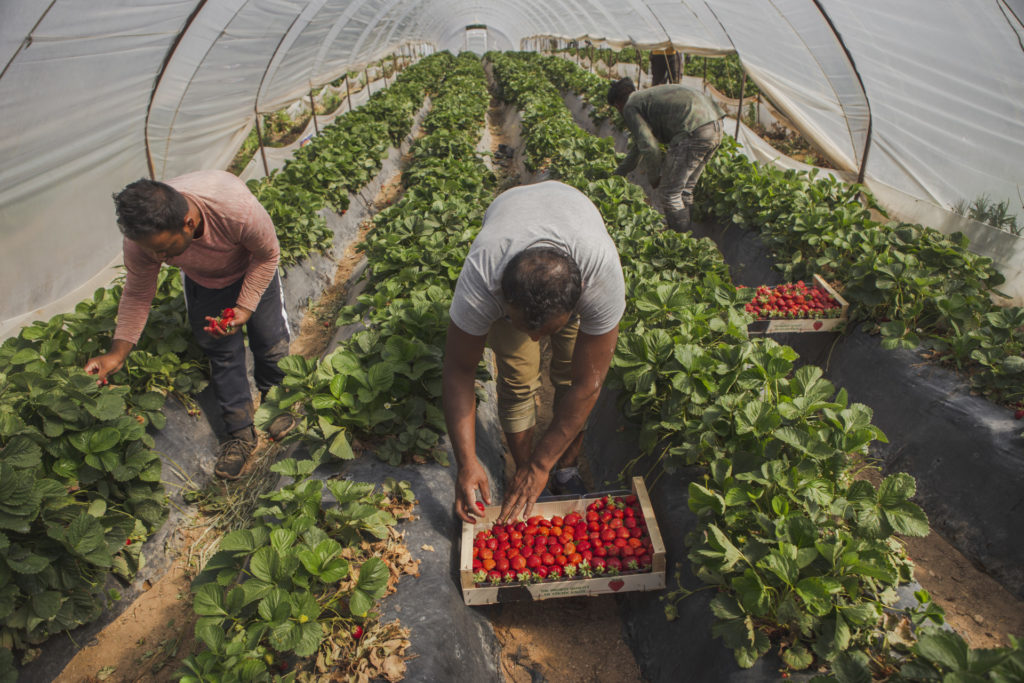

For more than a decade, this tiny village’s name had become synonymous with exploitation and abuse. Manolada drew international attention in 2013 for a protest by 200 migrant workers who had been denied their wages for six months. Three foremen opened fire, injuring 42 Bangladeshi strawberry pickers and leaving eight hospitalized in critical condition.
In 2017, the European Court of Human Rights ruled against the Greek state in favor of the strawberry pickers. According to its judgment, Greece breached Article 4 Clause 2 of the European Convention on Human Rights, as it failed to protect the workers from human trafficking, exploitation and inhumane labor conditions. Eight years on, physical violence is no longer common, but thousands of migrants continue to find themselves in an endless cycle of exploitation and abuse.
Rakib (name changed for security reasons) was one of the migrants working the strawberry fields in 2013.
Rakib’s stint in Greece had started in Athens, where he had to live in a basement with three other migrants. But Athens was dangerous back then, and Golden Dawn — a neo-Nazi political party whose general secretary and several parliamentarians of which were later found guilty of leading a criminal organization — was at the peak of its power. They would frequently attack migrants.
“I didn’t feel safe there, so in 2013 I decided to come here,” Rakib said. “When I started working in the strawberry fields, my boss used to delay our wages. Sometimes we would work up to two months unpaid. We didn’t even have money for food.”
Rakib used to live with the other workers in makeshift shelters in one of the informal camps that sprout up during the strawberry harvest every year, when between 7,000 to 10,000 seasonal workers come to Manolada. One such settlement is at the edge of the village, invisible to passersby, situated amid uncut vegetation. The shelters are built with the plastic used in greenhouses, cartons, blankets and bamboo sticks. The temperature inside can reach boiling levels during the summer.
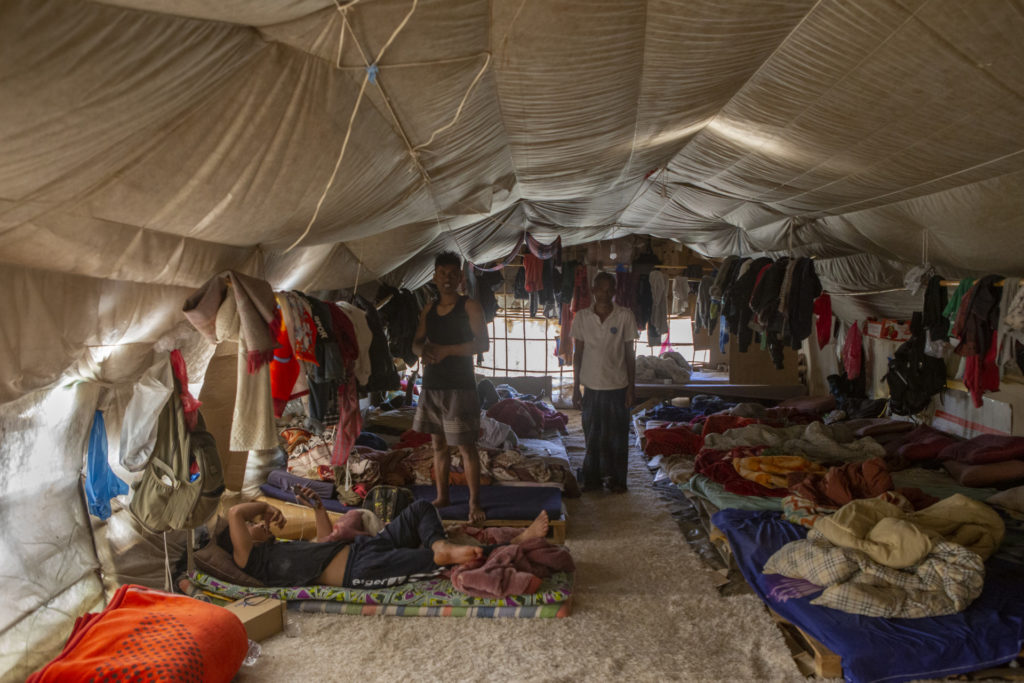
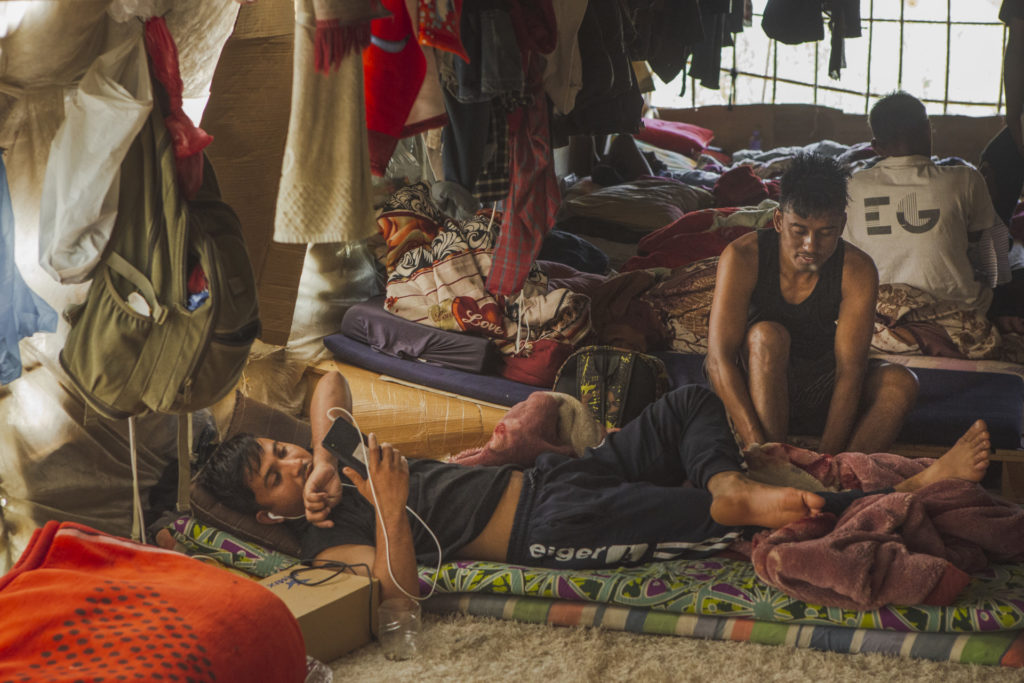
It’s the end of spring, and residents are already struggling to stay more than half an hour inside during the day because of the heat. Groups of men can be seen walking in and out.
“Depending on the size of the shelter, we would fill it with cheap mattresses,” recalled Rakib. “There are no toilets, so we made improvised toilets ourselves. We were lucky that the land we were on was near the strawberry field, so we could get water from there. Not all camps have access to running water. We were paying 15 euros [$17 U.S.] per month per person to live there.”
Locals around Manolada also provide their unused farmlands to migrants for accommodation in return for cash, but no services are provided. Hundreds of seasonal workers are crammed into small makeshift huts under horrendous conditions with no access to running water or hygiene facilities, while a local can make up to 30,000 euros ($35,500 U.S.) per harvest out of this arrangement. In one of the camps, people are paying 220 euros ($260 U.S.) per month, which is the price of a studio apartment in the nearest city, for a makeshift room where more than 15 men sleep. In return they get electricity and some tanks of water. The residents there have also improvised a mosque out of metal panels.
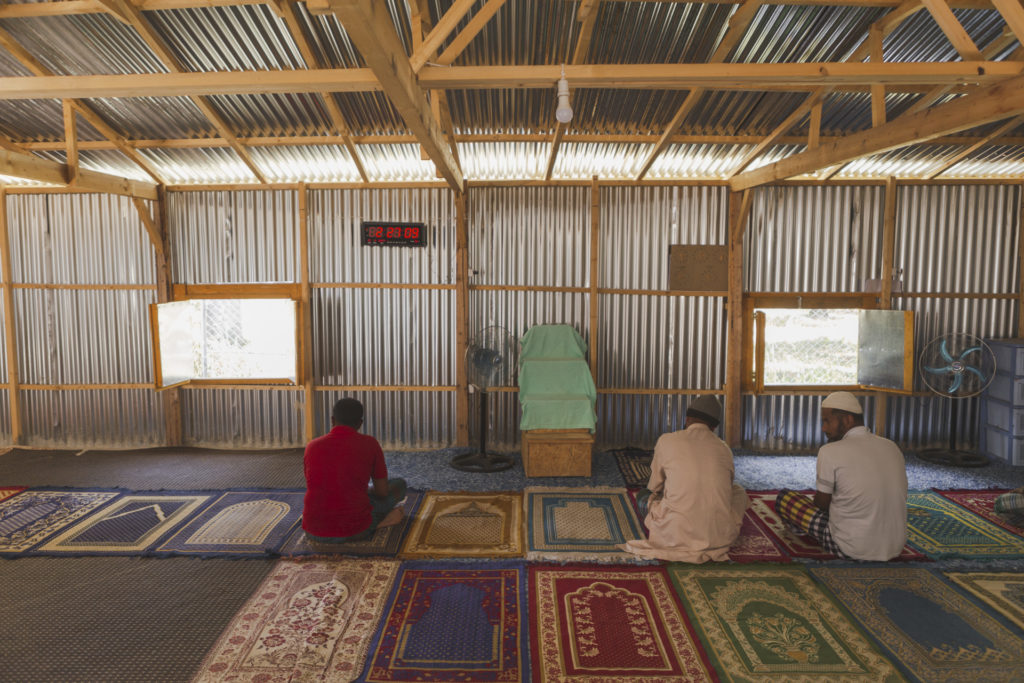
The daily wage is 24 euros ($29 U.S.) for seven hours of work, and extra hours are paid at the rate of 3.5 euros ($4.15 U.S.). During the harvest season, each worker collects about 100 kilograms (220 pounds) of strawberries per day. A consumer pays 3 to 7 euros (about $4 to $8 U.S.) per kilogram.
Migrant workers often fall victim to fraud. Lawyers are also among those who exploit them. It’s estimated that only 5% of migrant farm workers have work permits or any legal status in Greece.
“Lawyers promise us residency permits, even though there is no legal framework providing residency permits to land workers,” said one of the agricultural workers who spoke to New Lines on the condition of anonymity. “Only later do we learn that the lawyers tried to get us residency permits by submitting forged documents as part of our application. Most people working here speak neither English nor Greek; they get exploited very easily. Several of them were caught by the police because of documents that were forged by the lawyers. They were totally unaware. And now they face criminal charges, and any hope of a residency permit in the future has vanished.”
Despite the heavy dependency of the agricultural sector on migrant workers, the Greek state hasn’t provided them legal status and has taken no action to integrate them into society. As a result, thousands of workers are invisible to the Greek state and live under substandard conditions. The Greece-based nonprofit Generation 2.0 for Rights, Equality & Diversity started an initiative to monitor the conditions in Manolada and in a recent report compared the situation there to “modern slavery.”
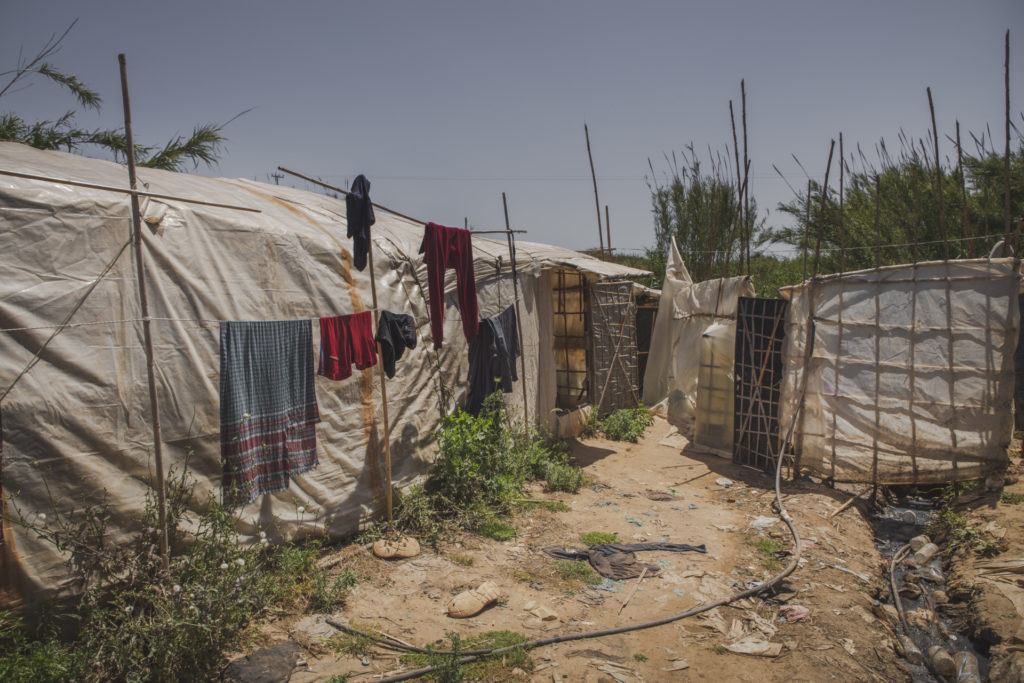
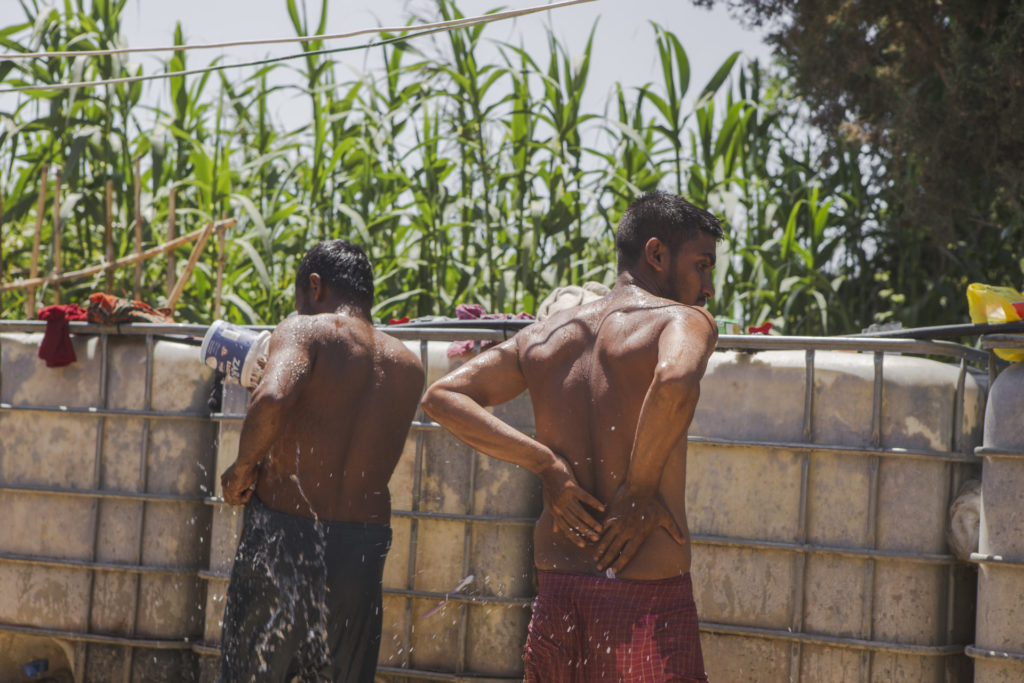
Rakib told New Lines: “Up until few years ago, in case of a serious accident, undocumented workers couldn’t even get medical treatment in public hospitals. Thankfully the law changed, and we now have access to hospitals, but many of them can’t even afford to pay for their transportation to the hospital. To get a taxi to the nearest hospital costs 50 euros ($59 U.S.), which is more than twice of the daily wage in the strawberry fields. Many of them forgo medical treatment in case of an accident as they cannot afford it.” As with many in such situations, they have to rely on the kindness of strangers. “Thankfully, the local pharmacist is helping us in any way she can.”
Health authorities haven’t conducted any visits to the camps since the start of the pandemic. People are worried about COVID-19, but surprisingly, no outbreaks have been reported so far. However, at least one 27-year-old worker reportedly died from COVID-19 after being taken to the nearest hospital in critical condition. Despite the availability of vaccines in Greece, undocumented workers fall through the cracks of the system and get no access to the national vaccination program.
“At the end of the day, the Greek government is responsible for the situation in Manolada. Workers there fall victim to every kind of exploitation just because there is no legal framework protecting their rights. This has a devastating impact on their daily lives,” said Ismini Karydopoulou, the program officer of Generation 2.0 for Rights, Equality & Diversity.
Rakib eventually worked his way out of this situation and now helps others who are still trapped. Despite the difficulties, he is grateful for the chances he has had so far.
“While I was working in the strawberry fields, I collected some money and managed to buy a small car so I could work as a driver in the evenings. I also harvested other fruits and vegetables. I worked on potato fields where we were getting paid 0.10 euros [12 cents U.S.] per crate. The last two years I collected enough money to start this store.”
He speaks Greek well, sitting behind the till of his small convenience store, looking through the shop window at the slow life of the small village.
“There is no competition because I bring products that Greeks don’t use. I bring rice because the Greeks don’t eat so much rice. We couldn’t find the rice we eat in Bangladesh.”
His awkward laugh and the lack of eye contact suggest that recounting his past experiences isn’t easy.
“Now people are getting their wages on time. The landowners know that if migrant workers stop working, the strawberries will rot in the fields and the financial damage would be huge for them. In the past there were also Bulgarians and Romanians working in the fields. But since their countries got into the EU, they are looking for opportunities in richer countries. Only the Bangladeshis are surviving under these conditions and, unfortunately, the living conditions haven’t been improved since I was working in the strawberry fields.”
A short while later, Rakib also opened a barber shop next to his store. Despite the financial crisis that still devastates the country, Rakib remains positive. He was lucky. A few miles away, his compatriots still endure the camp’s hardships in the hope that one day they, too, can live free of need.
Men like Rakib often are not seen as seasonal workers but as units in a production line.




Photos of the strawberry farms and the makeshift shelters where Bangladeshi migrants live and work in Manolada / All photos taken by Anna Pantelia


